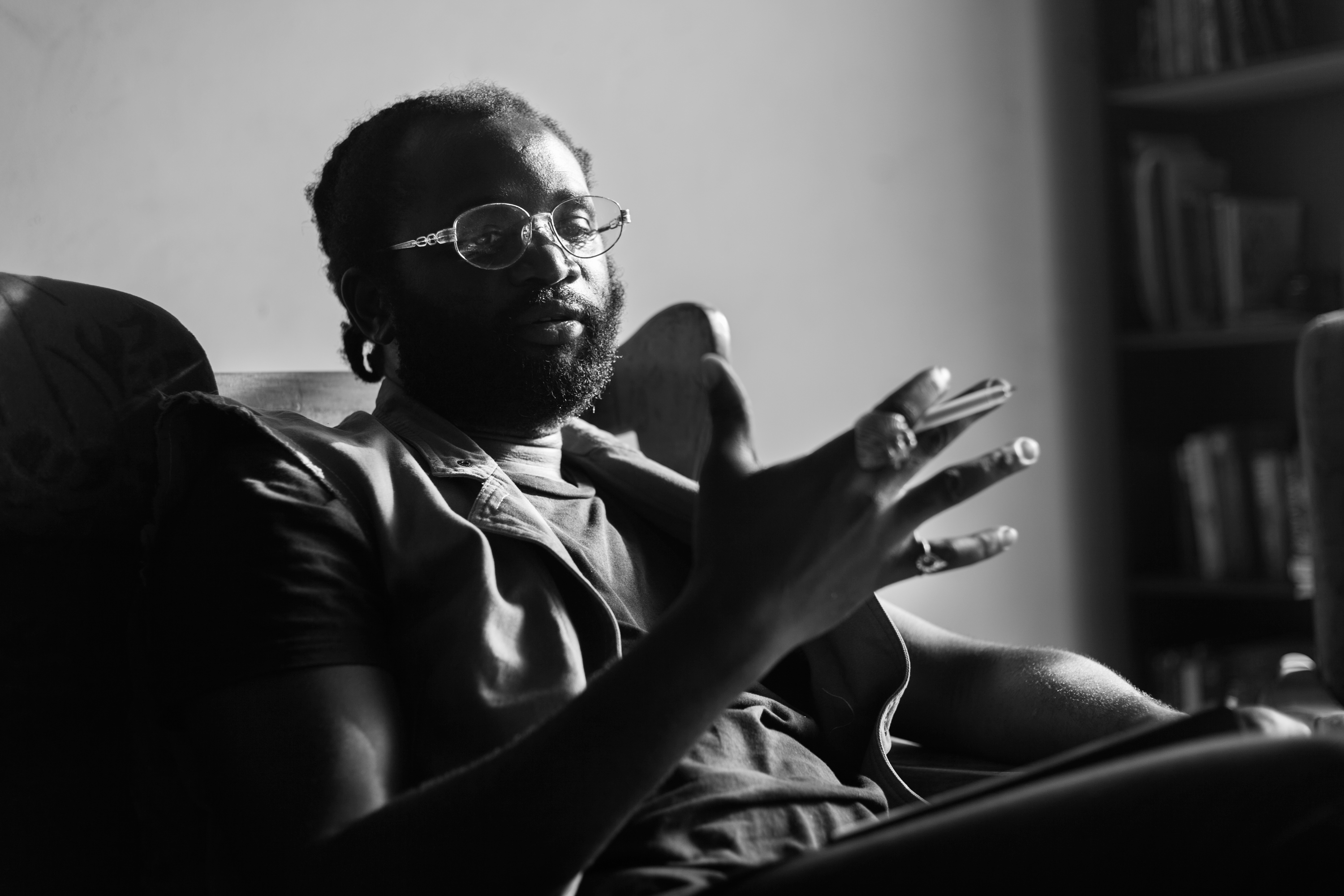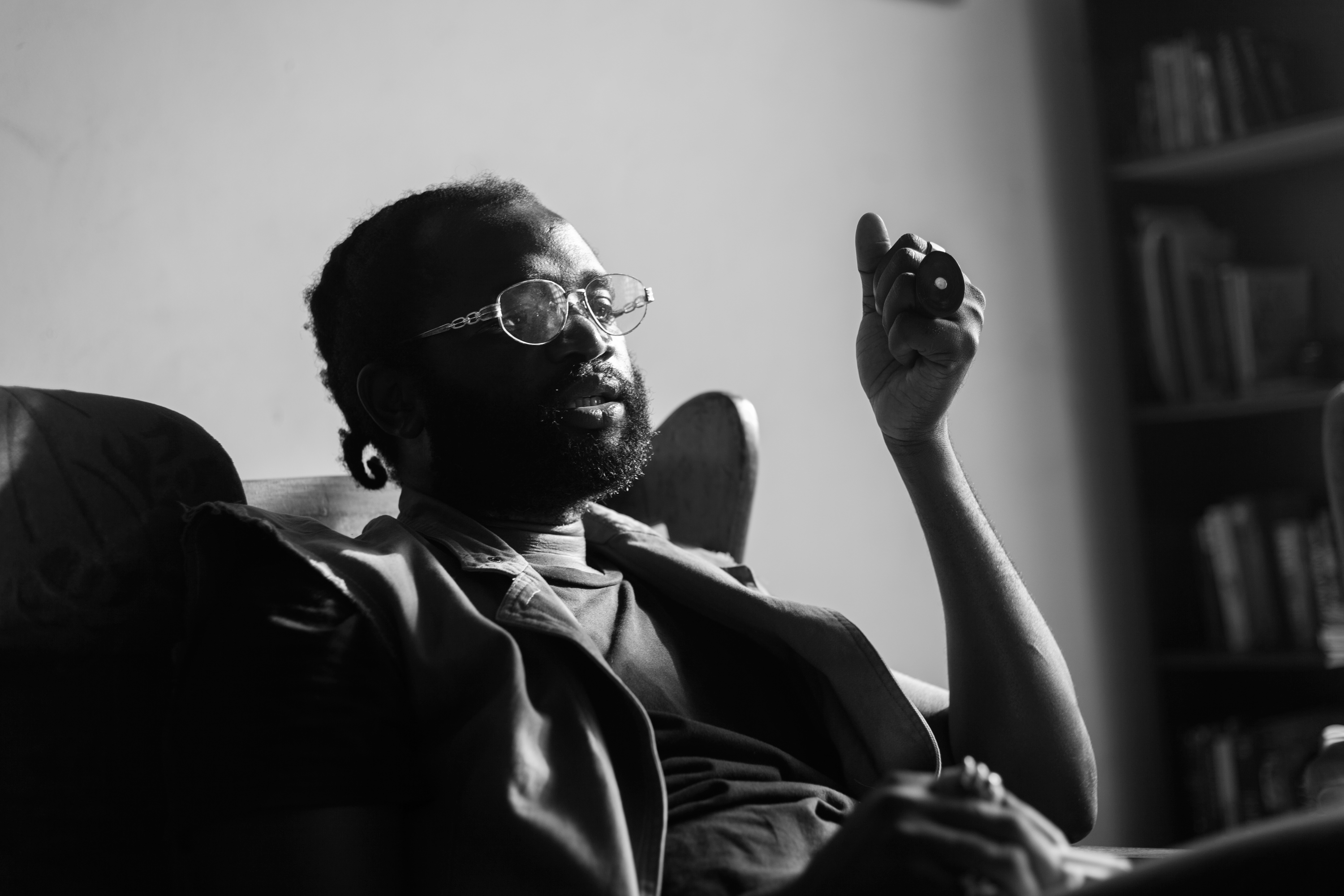“Where do we come from? What are we? Where are we going?” – these questions are embedded within our language, spirituality and traditional culture. As we have advanced as a people, you can see these questions within the works of artists and creators around the continent. Ghana’s first president Kwame Nkrumah once said: “I am not African because I was born in Africa but because Africa was born in me”. This to me means Africa is an idea, a spirit, a purpose, a drive. It is within the soul of a child once they arrive from wherever they come from. In Things Fall Apart the Nigerian author Chinua Achebe tells his story, the story of his people, trying to fill in the gaps, introducing new narratives. He explores the identity struggles brought by the introduction of Christianity.
“Where do we come from? What are we? Where are we going?” – these questions are embedded within our language, spirituality and traditional culture.

Photography by Eric Gyamfi
In 2012, Nigeria was hit with a massive fuel crisis, there was a government shutdown and nationwide protests. A group of writers, artists, activists, musicians, poets and designers came together to find a solution, and we hit the streets documenting developments and speaking with market women, cab drivers, students, civil servants, traders and many more. This revealed a lot, and we truly felt the pulse of the masses. Rather than centre the politicians and professionals that are usually the voices in times like these, the documentaries we created redirected the light toward those whose daily lives were highly affected. We realised that traditional media platforms like television, radio and newspapers followed a template that wasn’t completely true to the people or reflective of the times – radio stations, lacking in their repertoire, struggled to find contemporary music and so played mostly Fela and Femi Kuti songs throughout the period of protests.

Photography by Eric Gyamfi
It was refreshing to create a different approach to this story. Instead of discussing a lot of technical analyses, we had more personal, emotional and unfiltered opinions. This was the defining moment for me. I had come to appreciate the power of truth-seeking and storytelling, making me fully understand the importance of telling one’s own story and controlling one’s narrative. We were blown away by our findings and this experience propelled me to create the first The Art Concept (TAC) project, an ode to a man who has been a voice for his people for almost four decades, Femi Kuti, on his 50th birthday.
And so here we are now, a number of years later with TAC, a research-focused incubator with an online platform. Our long term goal is to build audio-visual libraries and spaces around the continent to enable people to experience and access our research and documentation. These centers would serve as a go-to place for the public, students and researchers. TAC seeks to probe the ideas of what it means to be African, and one of our primary aims is to communicate our findings to Africans on the continent and in the diaspora. TAC’s work will add to the centuries of work done on African identity by those before us.
We will be calling on you to help research, document, fund and donate useful materials towards the progression of TAC. As the saying goes, it takes a village to raise a child, and I hope the village helps me with this child.